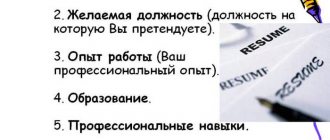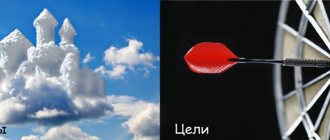Why plan a year
“The best way to predict the future is to create it” Abraham Lincoln
Do you plan your trip or some major purchase, or do you always buy everything without thinking and go on trips spontaneously? Most likely, you choose the first option. No one wants to waste money by purchasing a low-quality product, and no one wants to ruin their mood because of a poorly organized trip, especially if the trip is so long-awaited.
Then why do many so diligently plan a one or two week trip, and the rest of the year they prefer to “go with the flow”? Is a week of travel really more important than the whole year?
Planning goals helps us understand our desires and priorities, and also reminds us of why we take concrete steps every day.
If you want to realize your goals next year, and not someone else’s, then it’s time to decide what you want, what you are striving for and make a list of what you plan to achieve, and not just dream.
Life with and without goals
No amount of bogus Harvard research on the 3% success rate of graduates will convince you to maintain a habit of living with goals. The reliability of research does not compare with personal experience.
With a specific goal, a person not only becomes more productive, but also feels better: as if he is in control of his life. Feels progress, crossing out a subgoal each time, and the pleasure of realizing the work done. Self-confidence and self-esteem grows - this is useful when it is low.
The best way to test all these statements is to conduct an experiment in your life . Make a list of goals for 2021 and live by it. If you haven't had this experience, this is a great way to learn something new about yourself and experience purposeful living. If you don’t feel the benefit of such a life, go back to the old way.
How to make a list of goals for the year
There are two options for compiling a list of goals for the year.
The first is to take everything to the maximum, i.e. according to the principle “if you dream of reaching the moon, you will at least jump over the fence.” In this case, it is proposed to set the most ambitious goals. For example, if you receive 20,000 rubles per month, then set a goal to increase your income to at least 200,000 rubles per month. The assumption is that by setting such big goals, you will be more actively looking for different ways to achieve them.
The second planning option is to focus only on a few of the most important goals that you can definitely achieve if you put in some effort. For example, go on a trip somewhere. If you try even a little and purposefully save part of your income, then you will definitely be able to make the trip. This method is suitable for those who “give up” at the slightest failure, and success in achieving even very small goals will help such people be inspired to achieve more ambitious goals in the future.
However, I prefer something in between. I like to make my to-do list for the year by writing down everything I really want to do this year. By compiling a wide list, I understand what I really want now, and what is secondary and can wait until next year, or, in principle, by then it will no longer be interesting to me.
Naturally, the list is periodically adjusted throughout the year, because... Circumstances, interests, and aspirations change. The plan for the year should not be something indisputable. He must be flexible so that you control him, not he controls you.
I usually identify 10 categories of goals and then write my plans according to those categories. I think this is more convenient than simply listing all the goals for the year, because... allows me to more clearly understand what and in what area of my life I want to change and achieve.
These 10 categories are: 1. Health. 2. Spirituality. 3. Family, relationships. 4. Environment. 5. Self-development, personal growth. 6. Professional growth. 7. Finance. 8. Home 9. Creativity, hobbies. 10. Leisure.
Each person, of course, will have their own list of goals for the year. Some will focus on the financial sector, others on health, etc. But it's best if you try to make the list as balanced as possible. That is, if you understand that, for example, you have more health problems, then the main attention will need to be paid to this category. Therefore, there may be a little more goals here than in other categories.
You can write goals not in all categories, but only in some; you can write 2-3 goals, or you can write at least 20-30 goals in each category. This is your plan. The main thing to remember is that you are not writing a list for the sake of a list, but in order to more clearly specify what you are going to do next year and make efforts to achieve your goals. And the list will be your guide and reminder.
Understand the importance of choice
Humans are fundamentally different from animals. Animals are a direct product of the environment. They react to external circumstances and adapt to them, thus changing over time. The process of their evolution is slow and random.
Humanity is an indirect product of the environment. Although it is the means by which people have adapted and changed, our personal choices largely determine the environment. This is the fundamental difference between a person and an animal.
We decide the direction and strength of personal evolution by intelligently designing the environment around us.
You are the sum of the five people you spend the most time with. You are what you do. Your life can be measured: it is directly proportional to the importance of the problem you are trying to solve. So choose wisely.
List of goals for the year (example)
I will give you a list of goals for the year, and maybe you will like some of them and you will take them into your plan for the year, or maybe they will give you the idea of some other goals.
So, my example is 120 goals for the year:
Health
1. Pass a comprehensive medical examination 2. Visit the dentist 2 times a year 3. Get laser hair removal 4. Lose excess weight 5. Start regularly playing your favorite sport (at least 2 times a week) 6. Try a new type of fitness 7. Do the splits 8 Learn to do push-ups 9. Learn to do pull-ups 10. Learn to do cartwheels 11. Do stretching exercises every day 12. Do eye exercises every day 13. Learn to do facial exercises 14. Breathing exercises 15. Sleep at least 7 hours 16. Go to bed earlier and get up earlier 17. Drink a glass of water on an empty stomach in the morning (you can with lemon) 18. Change your hairstyle 19. Get a professional manicure and pedicure 20. Take a course of wellness massage 21. Every evening before bed, walk for at least 30 minutes 22. Give up gadgets for 1 hour before bedtime 23. Reduce/refuse consumption of meat, poultry 24. Reduce the amount of sweets in the diet 25. Refuse fast food 26. Hardening, dousing with cold water, contrast shower 27. Restore hair 28. Restore vision
Spirituality
29. Go to church services at least once a month 30. Learn three new prayers 31. Donate unnecessary things to a charity 32. Sign up for monthly donations to a charity 33. Keep fasts 34. Read the Bible 35. Every morning 5 minutes of silence and solitude 36. Enjoy every moment of life, live here and now
Family, relationships
37. Play a new game with children every week 38. Engage in creativity, logic and thinking exercises with children more often 39. Make a list of questions for children about their tastes, preferences, dreams, desires, thoughts, so that they answer them at the beginning of the year (record answers on video) 40. Organize an unforgettable birthday party for each child 41. Vaccinate children 42. Organize a trip for mom to a sanatorium in the Krasnodar region 43. Make an advent calendar 44. Arrange a romantic dinner in nature 45. Make a request about my ancestors who died during the Great Patriotic War 46. Take part in the procession of the “Immortal Regiment” 47. Make your own family tree 48. Do not push children 49. Every day devote personal time and attention to each child individually
Environment
50. Meet with friends more often 51. Write a list of people to whom I am grateful and for what 52. Listen to the interlocutor with 100% involvement 53. Learn to say “no” to things that do not lead me to achieve my goals
Self-development, personal growth
54. Read 26 books on self-development and professional growth 55. Learn to listen to others without interrupting 56. Plan things for the next day every evening 57. Improve your level of foreign language proficiency 58. Learn at least 10 new foreign words every day 59. Master mnemonics for improvement memory 60. Learn NLP methods 61. Strive for a slow life 62. Get a driver's license 63. Every evening write in a diary about your successes, for which I am grateful for this day and the most wonderful moments 64. Don't fuss 65. Never shout 66. Neither no one to argue with. Never! 67. Don’t be offended by anyone 68. Don’t judge anyone
Professional growth
69. Create your own website/blog 70. Publish 100 articles on the website 71. Master Photoshop 72. Master video editing 73. Take a training course that will increase the level of my professionalism
Finance
74. Open an IIS (individual investment account) 75. Start investing 76. Invest at least 10% of income monthly 77. Find at least 2 additional sources of income 78. Create 2 passive sources of income 79. Increase your income by 50% 80. Insure life and health all family members 81. Insure the property 82. Create a “safety cushion” of six monthly expenses 83. Make large purchases after analyzing the market offers 84. Refuse emotional purchases
House
85. Learn to cook 12 new dishes 86. Create a menu for the month 87. Copy videos from your laptop onto disks 88. Scan all documents, instructions 89. Throw away junk 90. Put into practice the principles of minimalism 91. Buy a house/apartment 92. Practice conscious consumption 93. Strive for zero waste
Creativity, hobby
94. Draw a picture 95. Attend a clay modeling master class 96. Master scrapbooking 97. Learn to take photographs
Leisure
98. Skydive 99. Fly in a hot air balloon 100. Paraglid 101. Swim with dolphins 102. Go to the opera 103. Visit an unfamiliar area of the city 104. Go on a day trip to a neighboring region/country 105. Take a bike trip to a neighboring city 106 Organize a picnic in a snowy forest 107. Ski in the forest 108. Travel to the cities of the Golden Ring 109. Travel to St. Petersburg with the whole family 110. Travel to Moscow with the whole family 111. Visit the circus on Tsvetnoy Boulevard in Moscow 112. Visit on an excursion to the Ostankino TV tower 113. Ride a river tram along the Moscow River and the Neva River 114. Visit with children on an excursion to the Ostankino TV Center 115. Go rafting down a mountain river 116. Travel with the whole family to Veliky Ustyug to visit Santa Claus 117. River cruise on the Volga River with the whole family 118. Travel with the whole family to Altai 119. Order a family photo session 120. Dine in a restaurant with Michelin stars
Improve your skills
Renowned psychologist Anders Ericsson coined the term “thoughtful preparation.” His research was made famous by Malcolm Gladwell, who is famous for his 10,000 hour rule.
As history shows, people with innate abilities rarely make it into the world elite. Rather, those who end up there are those who devote most of their time to their craft. For example, most of the world's top violinists have played 10,000 hours of violin before they turn 20.
You can master anything and enjoy it more and more as you get better at it.
If you spend three hours, seven days a week, focused on a specific activity, you will accumulate 10,000 hours in 10 years. If you spend four hours five days a week, you will accumulate 10,000 hours in 10 years.
If you thoughtfully prepare for the same things you do at work, it means you can only work 3-4 hours a day. But your activities must be focused and productive. And this is impossible without setting priorities and constant practice. Think about what kind of task, after completing which everything else will seem easy or completely unnecessary? What are you willing to consciously practice for 3-4 hours a day?
Wheel of Life Balance
It is recommended to combine determination with a balance of values. A reasonable approach to a variety of experiences is a flexible position in such matters as setting tasks and achieving goals. The main ones will be aimed at acquiring life values. And their difference from dreams with expectation will be expressed in readiness to act.
If you integrate your tasks and vital areas, you will be able to spend resources of time and effort productively. The whole picture of life will be realized with maximum realization in the form of discovering the state of internal flow. Tasks that do not nourish a person emotionally will be eliminated as useless. Such integration takes place along the balance wheel. Firstly, you need to be aware of your purpose, for which you need to answer the following questions.
- What do I want in life?
- What big thing will I join?
- What will I remember after achieving what I want?
You should also consider your contribution to the world and how it might change. Such a system for achieving goals will be presented in the form of resources distributed across important areas of life.
Goal setting methods
The technology for converting a task from ordinary to smart (SMART) was discussed above. Methods for achieving goals, as well as setting them, are presented in greater variety. Let's look at a number of other popular practices.
- The goal frame connects the unconscious: the intention is processed in a form that is attractive to all facets of a person’s personality (physiology, intelligence, spirituality). The result of understanding the goals is agreement between them. After this, resources are turned on: consciousness and subconsciousness. Efficiency increases significantly, which predetermines rapid progress towards implementation.
- Brian Tracy's methodology is a 7-step training.
- The Jose Silva technique helps control the mind, increasing performance. The technology for processing goals is the joint work of both hemispheres of the brain. The author recommends programming the necessary events and then acting.
- The way to achieve your goals is reality transurfing, which gives the process power. A person must choose a version of events, imagine what he wants, and create an intention for implementation. After this, the task is transferred to external targets. And this fact works to create the required events. A person practically does not need to spend working time for implementation. The main thing is to find the desired reality.
Go beyond the banal
Henry David Thoreau
American writer, thinker, naturalist.
A man is rich in proportion to the amount of things he can afford to leave alone.
I recently spent Christmas in Omaha with my in-laws. I have always been inspired by their lives and characters.
My father-in-law is a very smart and successful man. He is one of those people who can do whatever comes into his head. He never gives up and always figures out how to do what he is trying to do.
But what strikes me most is his complete disregard for what most people value. Despite the fact that he is a millionaire, he and his wife live in a small apartment. He doesn't wear fancy clothes or drive expensive cars. He doesn't care about appearance. He doesn't care at all what impression he makes on other people.
But it is difficult to meet a more hardworking and more sincere person. He lives happily by his beliefs, spends time with his family, and works hard every day.
Free yourself from the need to purchase more and more things. Keeping what you have is always better than wasting it. Free yourself from worrying about what people might think of you.











